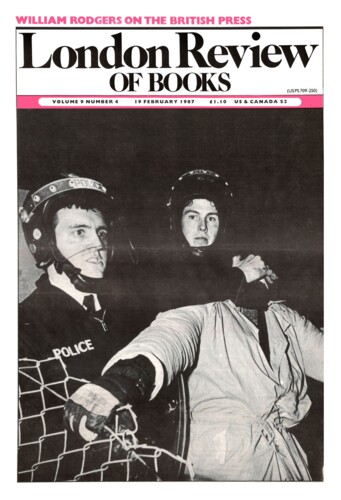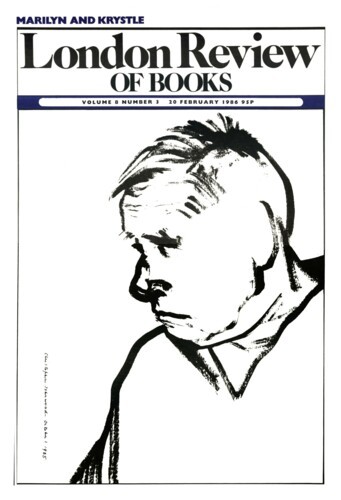Mr Lukacs changes trains
Edward Timms, 19 February 1987
When Georg Lukacs joined the Hungarian Communist Party in December 1918, his admirers were taken by surprise. This gifted young man from an affluent Jewish background, then aged 33, had previously devoted himself exclusively to cultural pursuits. After coming into prominence around 1905 as one of the instigators of the Hungarian intellectual revival, he had gone on to make his mark in Germany as a cultural theorist in the tradition of Dilthey, Simmel and Weber. When he settled in Heidelberg in 1912, he seemed set for a distinguished university career. His early inquiries had focused on the relationship between spiritual experience and aesthetic form, summed up in the title of his influential collection of essays, Die Seele und die Formen (1911). His writings displayed a lively awareness of the dependence of literary forms on sociological variables. But there was no sign of a Marxist (let alone revolutionary) perspective.


